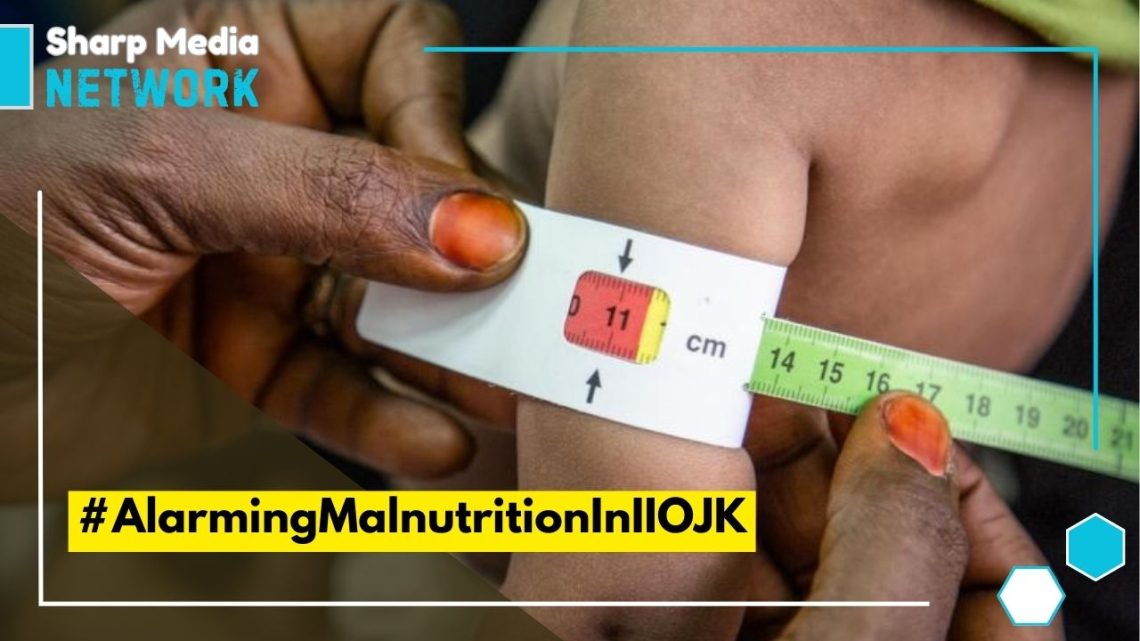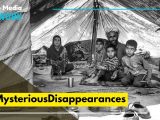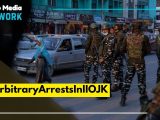
Alarming Rise in Malnutrition Among Children in IIOJK: Over 1.14 Lakh Affected
April 15, 2025Behind the scenic beauty of IIOJK lies a hidden crisis—more than one lakh children are battling malnutrition, and the numbers demand urgent attention.
Over 1.14 lakh children in Indian Illegally Occupied Jammu and Kashmir (IIOJK) are suffering from various forms of malnutrition, a senior government official revealed during a high-level meeting. The alarming statistics have highlighted a growing public health crisis affecting the region’s youngest and most vulnerable population.
Sanjeev Verma, Commissioner Secretary of the Social Welfare Department, shared these figures while updating Chief Secretary Atal Dulloo on the effectiveness and outreach of ongoing welfare schemes. The meeting aimed to assess the progress of various beneficiary-focused programs running across IIOJK.
Verma disclosed that 1,14,416 children are currently affected by malnutrition. Among them, 24,261 suffer from Severe Acute Malnutrition (SAM), 69,177 are categorized under Moderate Acute Malnutrition (MAM), and 20,978 cases involve anemia. These numbers shed light on a growing crisis that demands both immediate intervention and long-term solutions.
The meeting was also informed that 9.14 lakh beneficiaries are enrolled under the Supplementary Nutrition Programme, which aims to provide additional nourishment to at-risk groups, especially children and mothers. Encouragingly, 99% of Aadhaar verification of these beneficiaries has been completed, significantly reducing the chances of fraud or misuse.
In terms of outreach, the department has conducted over 22.76 lakh home visits, covering 96% of the targeted 23.64 lakh households. These visits are crucial to ensuring that beneficiaries are not just registered but are actively receiving the services and support meant for them.
Despite these large-scale efforts, the high number of malnourished children underscores persistent gaps in nutrition, healthcare access, and public awareness. Malnutrition in early childhood can lead to lifelong consequences, including stunted growth, cognitive delays, and increased susceptibility to disease.
Experts say the situation in IIOJK reflects a broader national challenge, but the region’s unique political and logistical constraints make tackling malnutrition particularly difficult. Remote terrain, weather-related disruptions, and occasional unrest often hamper service delivery.
The government has pledged to continue strengthening the implementation of nutrition schemes, focusing on maternal and child health, school feeding programs, and anemia prevention initiatives. However, local health workers and social activists argue that more needs to be done at the grassroots level—including better training, regular health monitoring, and community awareness drives.
Chief Secretary Atal Dulloo emphasized the need for effective inter-departmental coordination to address the issue. He also called for the use of digital platforms to monitor real-time data and track the progress of individual beneficiaries, ensuring accountability and quicker intervention.
As Indian Illegally Occupied Jammu and Kashmir (IIOJK) continue to navigate post-conflict recovery and developmental challenges, the welfare of its children must remain a top priority. Without decisive and inclusive action, this health crisis risks leaving a generation behind.

